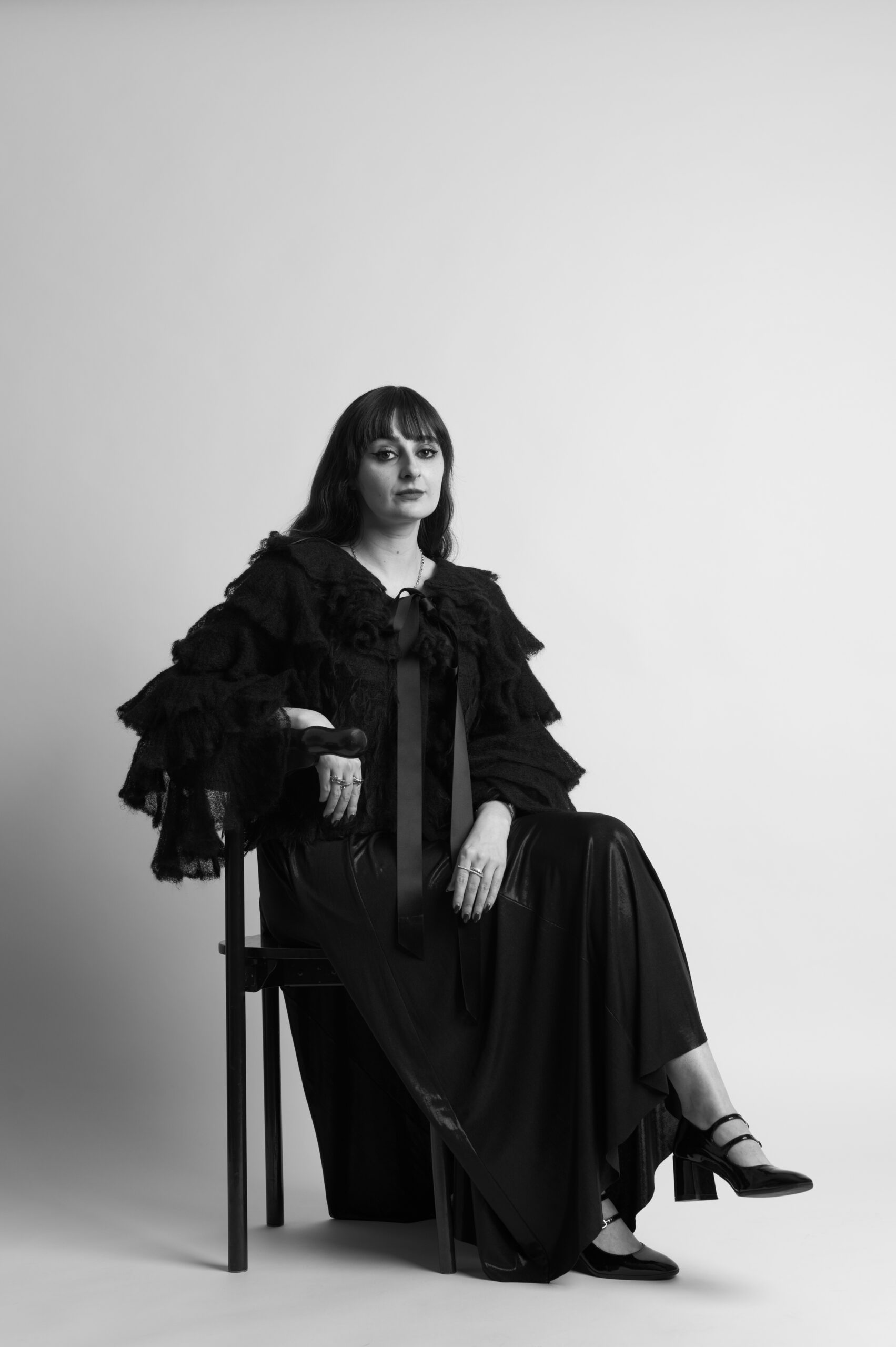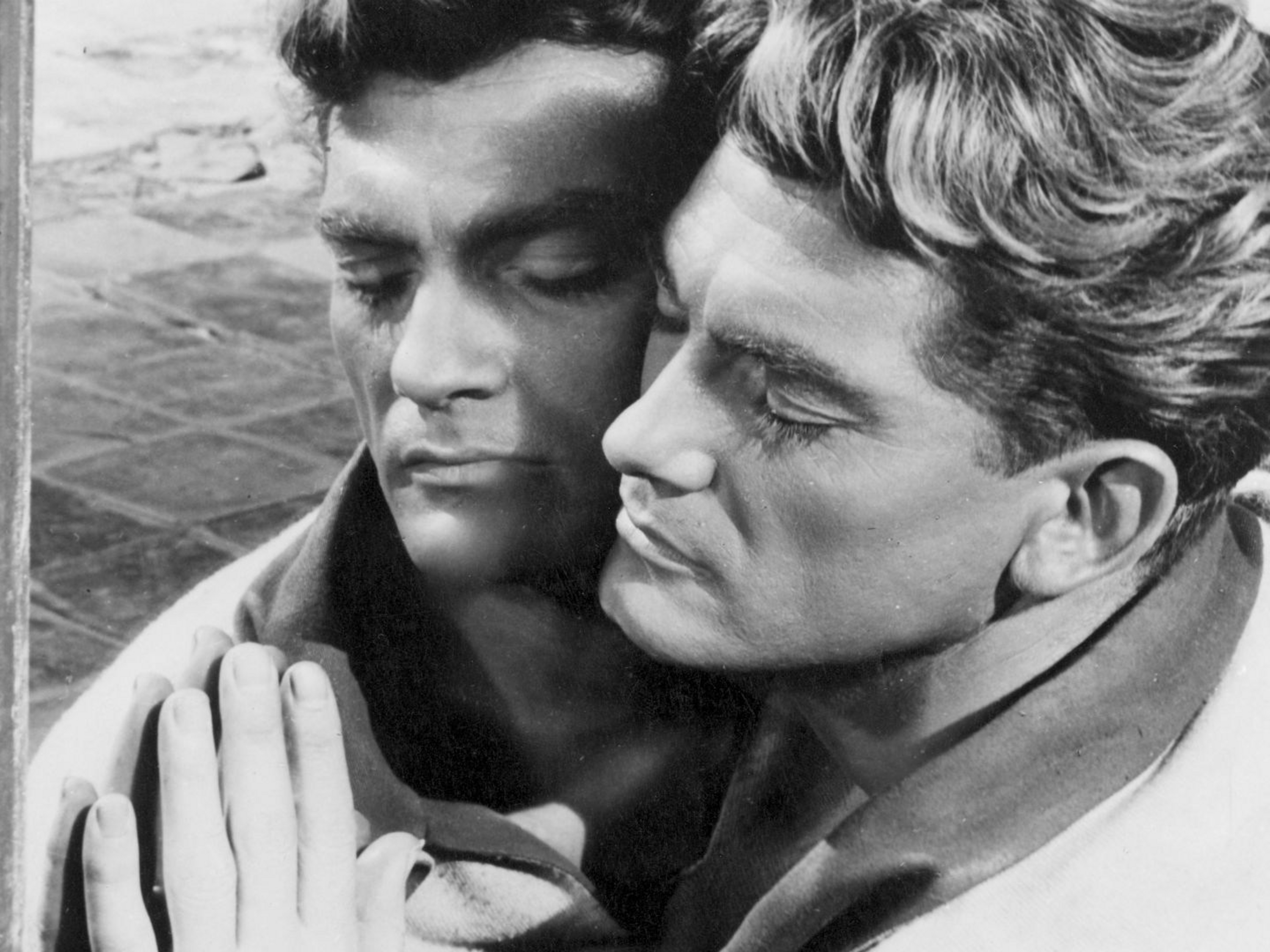FOR IMMEDIATE RELEASE
March 2025
Jean Cocteau’s Orpheus: A screening and conversation with SACRED MONSTER founder Chloë Cassens
and Surrealist Study Group at Philosophical Research Society
Announcing a new date for rain checked screening of the second film in Cocteau’s Orphic Trilogy

Chloë Cassens. Photo: Studio Lazareff @studiolazareff
Los Angeles, CA – After a weather-related power outage interrupted the original event in February, The Philosophical Research Society (PRS) hosts another screening of Jean Cocteau’s film Orpheus (1950) on Sunday, April 6, 2025, 7:00 – 9:00 pm. The film will be followed by an in-depth discussion about Cocteau’s groundbreaking work between Chloë Cassens, the founder of SACRED MONSTER and the representative of the Severin Wunderman Collection, which is the largest collection in the world of works by Cocteau, and dama, who is an artist, curator, a librarian at PRS, and the host of their Surrealist Study Group (SSG).
The second film in Cocteau’s Orphic Trilogy, Orpheus is a groundbreaking retelling of Orpheus and Eurydice, and is best known for its blurring of the boundaries between reality and myth, its inventive use of special effects, and its cultural response to post-war Europe. Orpheus also marks the pivotal moment when Cocteau started to exist in the modern world as we know it, less so in the fictional past and remnants of the fantastical Belle Époque and the Paris of the Roaring 1920s. Once described as “bizarre” and a “labyrinth of poetic symbols, mythological allusions and ironic jabs,” Orpheus has also been recognized as a landmark film by legendary filmmakers such as Andrei Tarkovsky and Akira Kurosawa, and it directly influenced queer poets such as Frank O’Hara and Allen Ginsburg upon its release in the United States.
Following last year’s packed screening of Cocteau’s revolutionary first film, The Blood of a Poet (1932), Cassens and dama will pick up where they left off with their discussion about Cocteau’s avant-garde legacy. Cassens and dama will discuss the film’s use of myth; its use of ruined wartime military academies in Paris as settings; its massive impact on 1980s New Wave music, as seen in The Smiths’ use of a still image from the film for the cover of “This Charming Man” and David Bowie’s inversion of the final frame of the film for his music video of “Ashes to Ashes”; and even the its modern influence on contemporary films such as Tim Burton’s netherworld dune landscapes in Beetlejuice (1988) that draw direct visual inspiration from Cocteau’s version of purgatory.
“Jean Cocteau’s Orpheus is one of his most iconic works, in a body of work that spans decades of iconic, influential, and essential contributions to culture and art history. It is essential viewing for anyone interested in film, queer history, French culture, Greek myths, or who simply wants to escape into another world for 90 some-odd minutes. Though I have seen Orpheus countless times, it is always breathtaking in its beauty, timelessness, and fantasy. Like most of Cocteau’s work, it remains shocking in its relevance to our lives in 2025, serving both as a reminder that we are not alone in our hardships and experiences, as well as a balm. I like to remind people that Jean Cocteau is your icon’s icon, and Orpheus is essential to understanding the later creations of titans like David Bowie, Morrissey, Tim Burton, and so many more.” – Chloë Cassens

Orpheus, dir. Jean Cocteau, France, 1950, 95 mins
ABOUT CHLOË CASSENS
Chloë Cassens is the representative of the Severin Wunderman Collection, the largest in the world of works by iconoclastic French artist Jean Cocteau. It makes up the entirety of the contents of the Musée Jean Cocteau-collection Severin Wunderman in Menton, France. She is a longtime scholar of Cocteau with a unique perspective, as she is Wunderman’s granddaughter. Based in Los Angeles, she was raised between LA, Switzerland and France before receiving her BA in Comparative Literature from Barnard College. She is the author of SACRED MONSTER, a biweekly essay project dedicated to celebrating Cocteau and the Collection. As the Collection’s representative, she works to educate others about Wunderman’s legacy and popularize Cocteau’s work around the globe.
Instagram: @chloecassens
Website: chloecassens.com
Sacred Monster website: https://www.sacred-monster.com/
ABOUT dama
Amanda Maciel Antunes (aka dama) is a Brazilian artist based in Los Angeles. Her auto-didactic and transdisciplinary practice merges language and durational performance to create site-specific works. She works in collaboration with public libraries, nature and communal spaces, reflecting on the selective nature of memory, inherent language and anthropological references written by women as points of departure.
Sites of practice have included a former WWII military shelter in East LA, Sæborg historical theatre in a northern fjord, Iceland, The Crowley Theatre in Marfa, TX; a Dessana Tribe territory in Rio Negro, Brazil; the Los Angeles National Forest; and the High Desert of California. She has exhibited her work in the USA, Brazil and Iceland. Recent select exhibitions and solo performances at Galeria Vermelho, Galeria Chão, Wignall Museum, Track16 Gallery, Irrational Exhibits, 18th Street Arts Center, Oregon Contemporary, Brand Art Library, Irvine Fine Arts Center, Philosophical Research Society. Her first book titled Second Birth was published in the Spring of 2023 by HEXENTEXTE. dama is a librarian at the Philosophical Research Society in Los Angeles where she also curates and hosts a monthly Surrealist Study Group focusing on women authors and artists in conversation.
Instagram: @amandamacielantune
Website: amandamacielantunes.net
ABOUT PHILOSOPHICAL RESEARCH SOCIETY
The Philosophical Research Society in Los Angeles is a nonprofit cultural and educational organization which presents concerts, film screenings, lectures, performance art and theatre events, gallery exhibits and more on the intersection between the creative arts and mythology, mysticism and metaphysics.
Instagram: @philosophical_research_society
Website: https://www.prs.org/
